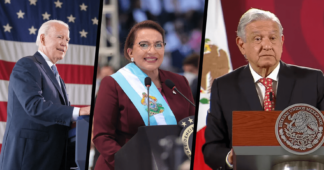Nine countries in the Americas have formed a coalition for the protection of the Pacific Ocean.
Jun 10, 2022
The ‘Americas for the Protection of the Ocean’ coalition launched on the sidelines of the IX Summit of the Americas, which concluded on Friday, June 10, in Los Angeles, U.S.
The move follows an initiative presented by the President of Chile, Gabriel Boric. According to the Chilean Ministry of Foreign Affairs, the initiative aims to create an interconnected ecological network of marine protected areas from Canada to Chile.
“From the Americas, we are today putting forward this initiative for the protection of the oceans with the objective of facing the three great crises that affect the world today: climate change, the loss of biodiversity and the deterioration of the oceans,” the President of Chile said.
Nine countries in the Americas with access to the Pacific Ocean formed the coalition, namely Colombia, Peru, Ecuador, Costa Rica, Panama, and Mexico, together with Canada and the United States, and of course, the sponsor Chile.
#StatecraftInTheNews: ??? #Chile's President, #GabrielBoric, launched the "Americas Coalition for the Protection of the Ocean" with 9 regional allies to protect marine biodiversity, promote tourism, and the sustainable development of coastal communities in the Pacific ocean.
— Statecraft (@statecraftdaily) June 10, 2022
“From Chile, we appreciate the generosity with which our sister countries join this initiative. Here it is not about protagonism: it is about us being able to contribute with a grain of sand to improve the quality of life of our inhabitants”, Boric added.
For her part, Chilean Foreign Minister Antonia Urrejola said, “We are very happy, because it is a Chilean initiative and the Pacific countries are accompanying us, something fundamental within the Turquoise Policy.”
Under the “Turquoise” policy, Chile advocates for the care of the terrestrial environment and the oceans. It is a cornerstone of Chile’s current foreign policy.
We remind our readers that publication of articles on our site does not mean that we agree with what is written. Our policy is to publish anything which we consider of interest, so as to assist our readers in forming their opinions. Sometimes we even publish articles with which we totally disagree, since we believe it is important for our readers to be informed on as wide a spectrum of views as possible.











